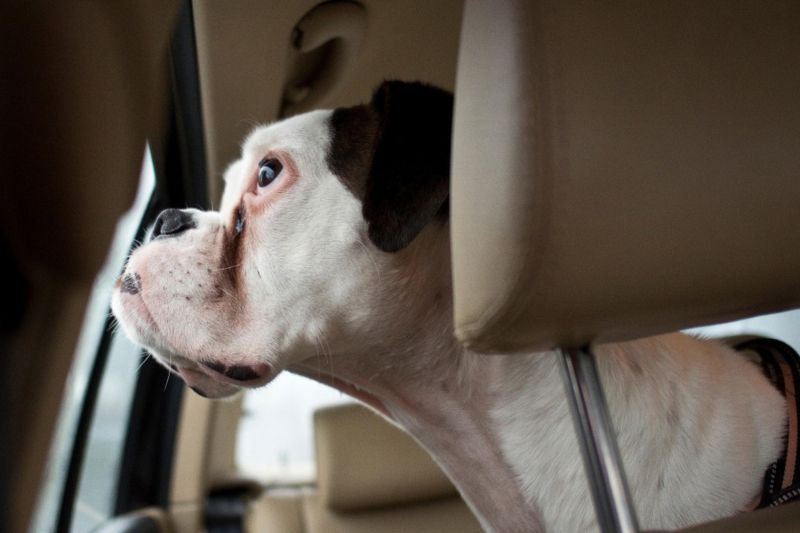It's not cool to leave a pet in a hot car
But what can we do if it happens?
May 30, 2017

As spring turns to summer, temperatures are quickly rising, which means letting your four-legged companion accompany you on driving errands can be particularly dangerous. I recently visited a local shopping center and when I headed back towards the parking lot, I could hear a dog barking. It sounded slightly muffled, like it was coming from an enclosed space instead of outside. I immediately started to worry and began looking around in cars. It was hot—high seventies at least—which meant the inside of a car was certainly intolerable. (When it’s just 72 degrees outside, the temperature inside a car can quickly soar to 116 degrees, even with the windows open and even in the shade). After a few minutes, I finally located the source of the barking, which was, thankfully, the veterinary office a few stores down and not a dog left in a hot car. Thank goodness!
I had a good laugh at myself, but the barking could have easily been coming from an unattended pet. And what if it was? And what if no owner was in sight as the minutes ticked by and the dog became more and more distressed? I would have called the local police or animal control, but time would have slowed to a crawl as I waited for help. It would have been illegal in my state for me to break the car window to rescue the dog, even if he was dying in front of my eyes.
Fortunately, there is now a growing list of state legislatures stepping up to the plate to prevent this suffering by allowing good Samaritans to enter vehicles to remove distressed animals under certain circumstances. Tennessee passed the first law of its kind in 2015, and since then the states of California, Florida, Massachusetts, Ohio, Vermont and Wisconsin have joined it. The trend continues this year, with similar bills popping up in states across the nation, including Arizona (signed by the governor!), Colorado (signed by the governor!), Connecticut, Indiana (signed by the governor!), Maryland, Nebraska, New Jersey, Oregon and Texas.
HSUS state directors, along with many local animal welfare organizations, are lobbying for these bills in hopes of establishing a greater level of protection for companion animals. Throughout our efforts, we have seen the opposition argue that these bills will result in mass vigilantism, with haphazard window-breaking for pets not truly in peril, and an infringement on property rights. But no data supports this claim, and police chiefs in states with these Good Samaritan laws have spoken out against this implication.
I wish that we didn’t need this type of legislation, and the truth is that many times it doesn’t come into play—concerned citizens and law enforcement are able to locate the car’s owner in time to take the necessary steps to keep the animal safe. However, there are circumstances when citizens are unable to find the owner, or when law enforcement or animal control is tending to other priorities and can’t arrive in time to rescue the animal. And minutes do matter when an animal’s life is hanging in the balance! That is when these laws are needed and can be the difference between life and death.
Many people who take their dogs with them in the car on warm days are unaware of the risk. They love their pets and don’t want to leave them home alone, so letting them tag along on an errand is not done out of malice. Have you ever made a quick stop, only to still be standing in the checkout line 20 minutes later? It happens to just about everyone! Take the pledge to never leave your dog in a hot car, and then help us spread the word in your community! You can post this informative Mouthpiece or even create a video like this one from Pima Animal Care in Arizona.
If you live in a state considering good Samaritan legislation, please contact your state lawmakers and urge them to vote YES! Don’t know who to contact? Look up your legislators. Look up your HSUS State Director. Protecting animals from an agonizing death is a problem we can all agree to prevent.
Learn more on how to help a pet left in a hot car and prevent further tragedy through legislation.

